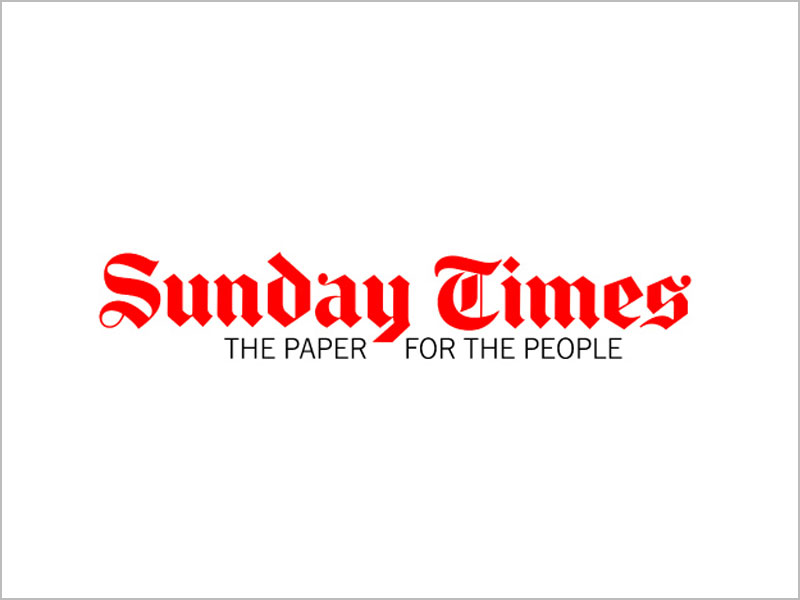Solving the major challenge posed by South Africa’s state-owned enterprises

In this series for Daily Maverick, executive director of the Centre for Development and Enterprise (CDE) Ann Bernstein makes the case for a policy agenda that is substantially different from what we have seen over the past 15 years.
It is drawn from AGENDA 2024: Priorities for South Africa’s new government, which is based on the CDE’s extensive policy work and recent collaboration with experts, business leaders, former public servants and others across our society. The project sets out to answer the most important question facing South Africa: what can a new government do to get the country back on track after 15 years of stagnation and decline?
The seventh article in the series focuses on how to solve the challenges facing the country’s SOEs. Read Part One, Part Two, Part Three, Part Four, Part Five and Part Six.
The government of national unity (GNU) represents an opportunity to implement the fundamental reforms that are needed to accelerate economic growth, job creation and deepening inclusivity. To do this, however, it cannot simply repeat the same broken playbook that has governed economic policy for the past 15 years.
In a series of publications, CDE has identified a range of areas in which catalytic reforms are needed. Among these, some of the most important relate to the state-owned enterprises (SOEs), the abysmal performance of which has cost South Africa, by one estimate, something like R2-trillion in output since 2010. They have also absorbed something approaching R400-billion in bailouts in that time.
To grow more quickly, South Africa needs to address both the financial and the operational crises of the SOEs. Growth will be hampered if the SOEs remain a massive drain on the fiscus; but resolving Eskom and Transnet’s financial crises won’t induce growth unless and until performance improves.
Energy supply must be reliable and its price must cease its meteoric ascent; the services of our ports and freight rail systems must be far more reliable and cost effective if they are to cease being a brake on businesses’ growth.
The SOEs’ crises have a number of causes, some of them deriving from confusion over their role and precise mandate. There are also commercial crises resulting from unfunded mandates, non-payment for services, overspending on capital projects, unsustainable and operationally unjustifiable increases in operational costs, and the impact of crime.
There are governance challenges, too: the SOEs are characterised by shareholder interference coupled with weak boards; procurement processes are routinely and systematically perverted for private gain; and the bodies tasked with regulating our SOEs are weak.
These are all symptoms of deep-seated problems in the way the government has thought about the SOEs over the past two decades, and the consequent failure to develop a sensible set of policies governing these entities.
In this regard, the National State Enterprises Bill is a distraction: it is, at best, a partial solution to only one kind of problem affecting the SOEs, and will do nothing to address key commercial and operational challenges. The cost and effort of setting up this institution will far outweigh whatever marginal benefits such an approach to managing the SOEs might have.
While there is no silver bullet for resolving the SOEs’ challenges, any serious reform agenda needs to start from the realisation that the root cause of much of the SOEs’ problems is that they are statutory monopolies, and that the government protects them from competition from more efficient providers of the same services. Had that not been the case, the SOEs’ collapsing performance would have had much less of a knock-on effect on the performance of the economy as a whole.
Fixing this means committing to policy reform that introduces competition into all the SOE-dominated sectors as quickly and comprehensively as possible. This is critical because competitive pressure constrains costs and maximises efficiency in service provision.
There is simply no way that the current approach of SOE strategic plans and annual performance plans can reproduce the kind of organisational and commercial discipline that is created by the risk of losing customers to a rival.
Obviously, introducing competition into all SOE sectors will take time. In the meantime, there are a number of actions that the President and the GNU should initiate to kickstart reform.
In the first instance, the President should release all the reports that the Presidential State-Owned Enterprises Council has commissioned into the commercial and operational performance of the SOEs. Where reports have not been commissioned or are inadequate, the President should appoint a high-level team led by business leaders to conduct a review of the financial position of all major SOEs (to identify solutions to the most pressing challenges).
This information is essential for informed debate about the state of the SOEs and their future. The President needs to trust the wisdom of crowds, not seek to protect deployees’ reputations.
The CDE disagrees with the President’s decision to designate the ministers of so-called policy departments as the shareholder representatives of the SOEs in their sectors. It is true that the Department of Public Enterprises was a malfunctioning organisation, but making policy ministers responsible for SOEs creates irresolvable conflicts of interest because the SOEs have an interest in the status quo, while the ministers need to be driving change.
Though there are risks, we think the SOEs should be managed by National Treasury until a small, highly skilled department can be established, the primary function of which will be to ensure that SOEs have effective boards and that the SOEs do not resist the introduction of competition.
Once housed under Treasury, that ministry must review the boards and management of all major SOEs, particularly in cases where boards or members have been in place for a significant period. Where deficiencies are identified, active steps must be taken to replace incumbents.
Effective and renewed SOE boards should be asked to commission skilled and independent public and private sector experts to review all large capital projects currently being executed to assess whether they are fit for purpose and being delivered on time and on budget.
Where deficiencies are identified, these must be addressed through the renegotiation of contracts; where corruption is identified or suspected, the law must be brought to bear quickly and effectively.
Treasury also needs to review the guidelines governing public-private partnerships (PPPs). These have been recently amended, but experts tell us that the rules still make it unnecessarily difficult to design and implement PPPs, and, in particular, to share risk appropriately.
Concerns regarding weak regulators and their lack of independence must be addressed. Strong, independent regulators will become ever more important as competition is progressively introduced.
To solidify and extend these measures, the government should develop an overarching competition policy that sets out the principles for the role of SOEs in the economy. The policy should specify the conditions under which the state is to use SOEs to produce goods and services and why, and the manner in which competitive pressures will be used to ensure commercial discipline and focus. This should then guide a review of SOEs across all spheres of government – national, provincial and local.
There are a number of additional reforms relating to individual SOEs that must be pursued in the short term. Eskom’s transition to becoming a systems operator that buys electricity generated by a diverse and decentralised producers’ market must be accelerated.
Transnet’s freight rail business needs to be restructured to facilitate competition between multiple providers of freight services. The ownership and management of the ports must be made independent of Transnet to ensure arm’s-length management of service providers in the ports.
The Passenger Rail Agency of South Africa’s rail networks must be devolved to the cities in which services are provided.
Ultimately, the approach to SOEs must be to increase the role of competition between service providers to discipline SOEs. This is the only way to sustainably ensure that services are accessible and provided at the lowest possible cost to users. If we can achieve that, the positive impact on the economy will be profound. DM
Ann Bernstein is executive director of CDE. This article draws on a new CDE report, ACTION SIX: Solve the SOE challenge, which is the sixth action document in CDE’s AGENDA 2024: Priorities for South Africa’s new government series.







